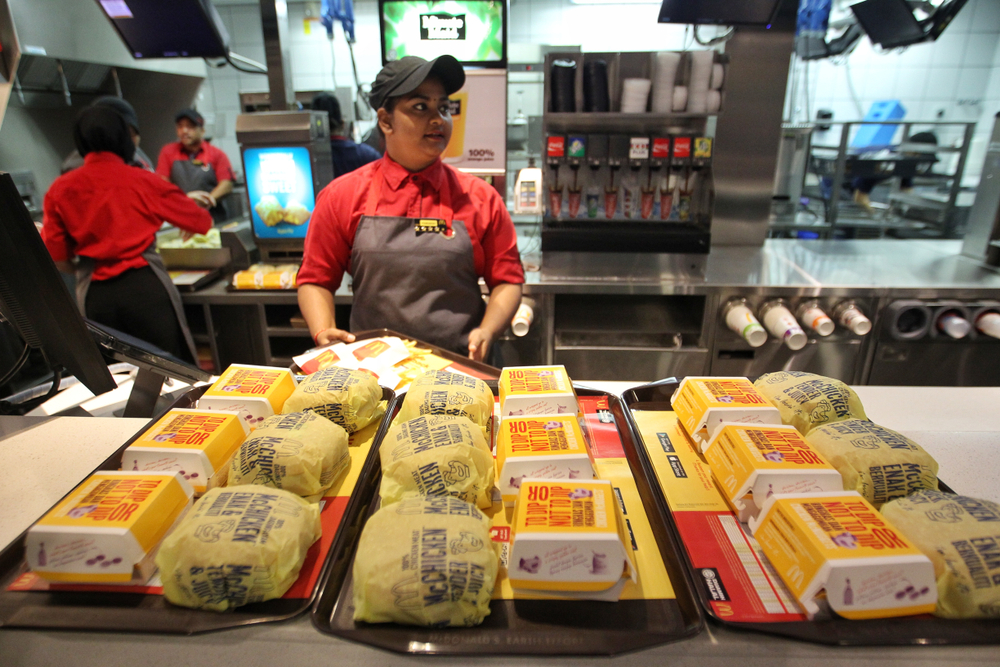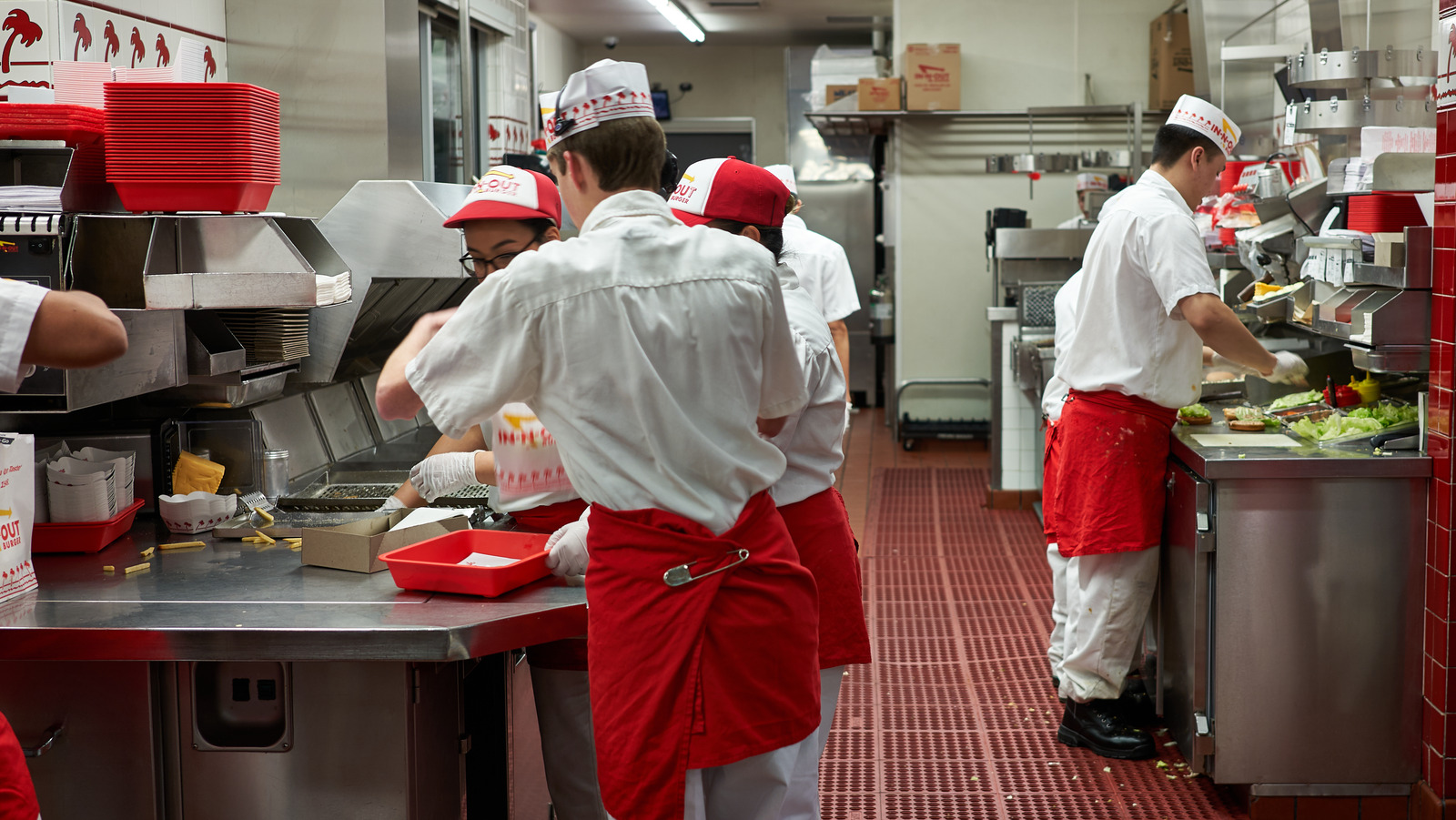Fast food places hiring is a critical aspect of the industry, given the high turnover rate and the need for a skilled workforce. This guide delves into the current job market, hiring trends, and effective strategies to attract and retain employees in the fast-paced world of fast food.
From job descriptions and qualifications to onboarding and employee benefits, this comprehensive guide provides valuable insights for restaurant managers and owners seeking to build a strong and motivated team.
Fast Food Hiring Trends: Fast Food Places Hiring
The fast food industry has long been a source of entry-level employment, particularly for younger workers. However, in recent years, the job market for fast food workers has become increasingly competitive.
One of the biggest challenges facing fast food employers is the high turnover rate. The industry has an average turnover rate of over 100%, meaning that more than half of all fast food workers leave their jobs within a year.
This high turnover rate can be attributed to a number of factors, including low wages, limited opportunities for advancement, and difficult working conditions.
Strategies to Attract and Retain Employees
In order to attract and retain employees, fast food employers need to implement strategies that address the challenges facing the industry. Some of the most effective strategies include:
- Offering competitive wages and benefits
- Providing opportunities for training and advancement
- Creating a positive and supportive work environment
- Offering flexible scheduling
- Recognizing and rewarding employee performance
By implementing these strategies, fast food employers can improve employee retention and reduce the high turnover rate.
Hiring Process and Onboarding

The hiring process for fast food restaurants typically involves several steps, including an initial screening, interview, background check, and job offer. Effective onboarding programs are crucial for ensuring new employees are properly trained and integrated into the workplace.
Hiring Process
- Initial Screening:Applications are reviewed to identify candidates who meet the basic job requirements.
- Interview:Shortlisted candidates are interviewed to assess their skills, experience, and fit for the role.
- Background Check:Background checks are conducted to verify the candidate’s identity, employment history, and criminal record.
- Job Offer:Qualified candidates are extended job offers, which typically include details about the position, salary, and benefits.
Onboarding
Effective onboarding programs help new employees transition smoothly into their roles. These programs typically include orientation, training, and mentoring.
- Orientation:New hires are introduced to the company culture, policies, and procedures.
- Training:Employees receive hands-on training on job-specific tasks and responsibilities.
- Mentoring:New hires are paired with experienced employees who provide guidance and support.
Training and Development
Ongoing training and development are essential for employee retention and growth. Fast food restaurants should invest in training programs that focus on:
- Job-Specific Skills:Training on specific tasks and responsibilities related to the job.
- Customer Service:Developing strong customer service skills to enhance customer satisfaction.
- Safety and Sanitation:Ensuring compliance with food safety and hygiene regulations.
- Career Advancement:Providing opportunities for employees to advance their careers within the organization.
Employee Benefits and Compensation

Fast food restaurants offer various benefits to their employees to attract and retain skilled workers. These benefits range from basic health insurance to more comprehensive packages that include paid time off, retirement plans, and tuition reimbursement.
The compensation packages of different fast food chains vary depending on factors such as location, job title, and experience. However, most chains offer competitive wages and benefits to ensure that their employees are fairly compensated for their work.
Impact of Employee Benefits on Retention Rates
Employee benefits play a significant role in employee retention rates. Employees who feel valued and supported by their employers are more likely to stay with the company for an extended period. This can lead to lower turnover rates, which can save the company money on hiring and training costs.
Marketing and Recruitment Strategies

Fast food companies must use effective marketing and recruitment strategies to attract and hire the best candidates. They must identify the right channels to reach potential job seekers and develop engaging campaigns that highlight the benefits of working in the fast food industry.
Effective Marketing Channels
- Online job boards (e.g., Indeed, Monster)
- Social media (e.g., Facebook, Instagram, TikTok)
- Company websites and career pages
- Referral programs
- Community outreach and partnerships
Role of Social Media in Fast Food Recruitment, Fast food places hiring
Social media plays a crucial role in fast food recruitment. Companies can use social media to:
- Showcase their brand and culture
- Post job openings and reach a wider audience
- Engage with potential candidates and build relationships
- Run targeted advertising campaigns
Successful Recruitment Campaigns
Successful fast food recruitment campaigns often involve:
- Clear and concise job descriptions
- Competitive compensation and benefits packages
- Engaging and creative marketing materials
- Targeted outreach to potential candidates
- Streamlined application and hiring processes
Common Queries
What are the common reasons for high turnover in the fast food industry?
The fast-paced nature of the work, low wages, limited opportunities for advancement, and lack of employee benefits can contribute to high turnover rates.
What strategies can fast food restaurants use to attract and retain employees?
Offering competitive wages and benefits, providing opportunities for growth and development, creating a positive work environment, and implementing effective training programs can help attract and retain employees.
What are the essential skills and qualifications for fast food employees?
Fast food employees typically need strong communication and customer service skills, the ability to work in a fast-paced environment, and basic math and food handling skills.

